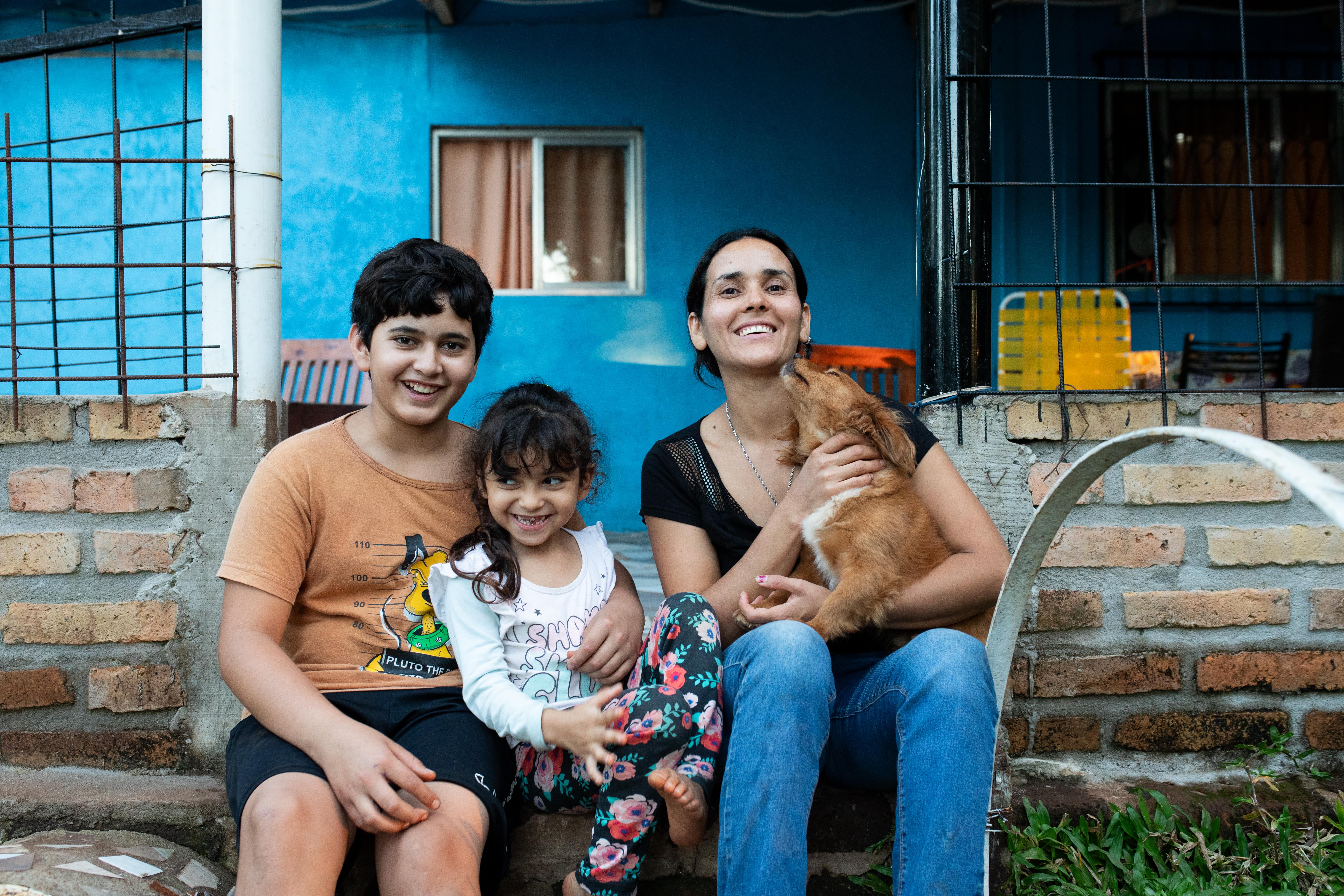In the 2 years since launching the Home Equals campaign, Habitat for Humanity has worked to improve living conditions in informal settlement around the world.

Home Equals focuses on empowering local advocacy, achieving access to basic services, and creating long lasting and resilient communities in each country it reaches to provide a safe and secure place to call home.
Habitat's goal through Home Equals is to expand adequate housing for 15 million people worldwide. So far, 7.9 million people have been impacted with improved access in over 45 countries and 5 continents.
In Indonesia, flooding along the coast of Tanjung Kait perpetuated unsafe conditions for families like Komariyah and her three kids. Habitat Indonesia was able to help Komariyah, a resident of over 20 years, and others to gain legal ownership of their land. They also worked with the local government and a microfinance institution to create a financing program that would address the underlying challenges to land rights in the country.
The Marka Camp outside of Amman, Jordan, has become home to over 68,000 refugees since 1968. In that time, families have started to build on top of old structures, leaving all residents vulnerable to the deteriorating conditions. Habitat Jordan has helped repair 85 homes and 8 community facilities with the help of Home Equals, impacting over 13,000 people.
Just outside of Lima, Peru, Madelina has turned to neighbours for 25 years in order to get access to water and electricity. Through advocacy supported by Habitat’s Terwilliger Center for Innovation in Shelter, policies for more affordable, need-based solutions have been put into place to help families like Madelina and her neighbours.
Almadet and her family in North Macedonia have lived in a home riddled with leaks, broken windows, and mould. Home Equals was able to provide them and others in the community with new doors and windows — simple changes that bring safety, warmth and peace of mind. Over the next three years, other community-wide upgrades like street repairs and waste management will benefit more than 25,000 residents.
El Cuzuquito, a mountain village in El Salvador, receives water delivery only a few days a week, leaving the community at the mercy of a drought. Manuel built his own storage and purification system and shared with his neighbours, but as conditions worsened it became impossible to keep up with the need. Habitat El Salvador partnered with the municipality to install 92 water storage tanks, bringing safer and more reliable water to the community.
Robert was born and raised in Mukuru, an informal settlement in Nairobi, Kenya. When an initiative was launched to improve the living conditions, Robert used his radio show to gather support in the community. Habitat Kenya and local partners were able to advocate for 16,000 residents and bring them access to clean water, and one step closer to a safe and healthy home.
Beyond on-the-ground help, Habitat has also published reports and research surrounding the health and wellbeing of women and families in informal settlements and what change can bring.
In Informal Settlement Improvements and Women's Health, Habitat found that by investing in housing improvements could save millions of lives. By providing proper sanitation facilities and improved ventilation systems to informal settlements, 20.3 million illnesses in women could be prevented and 25% of maternal deaths avoided.